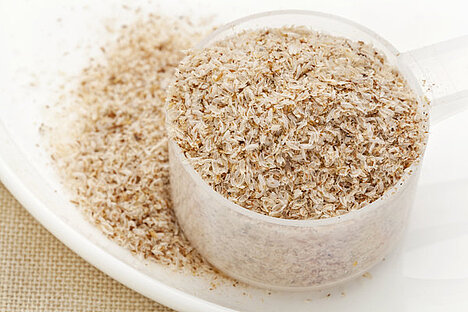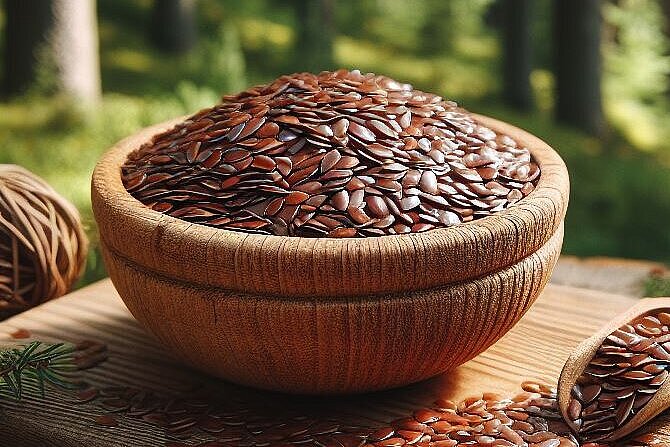Psyllium seeds

Psyllium seeds are the seeds of a plant called Plantago ovata, which is mainly cultivated in India and Pakistan. They are often used as a natural remedy for various digestive problems, as they contain a lot of fiber and mucilage. But can they also help your dog? In this article, you can find out more about the effects, use and possible side effects of psyllium seeds for dogs.
How do psyllium seeds work for dogs?
Psyllium seeds have a special property: they can bind a lot of water and therefore swell up. This has various benefits for your dog's digestion:
- In the case of constipation, psyllium seeds can make the stool softer and more voluminous, which facilitates intestinal transit.
- In the case of diarrhea, psyllium seeds can bind excess water in the intestines and thus make the stool firmer. They can also bind and excrete harmful bacteria or parasites.
- In the case of heartburn or inflammation of the stomach lining, psyllium seeds can form a protective layer in the stomach and thus alleviate the irritation.
- In the case of obesity or diabetes, psyllium seeds can increase the feeling of satiety and regulate blood sugar levels.
How do I use psyllium seeds for my dog?
If you want to give your dog psyllium, there are a few things you should bear in mind:
- It is best to choose pure psyllium husks without additives from a health food store or pharmacy. These have a higher swelling capacity than whole seeds or powder.
- Mix the husks into the food with sufficient water or give them separately as a mash. The correct dosage depends on the size and weight of your dog. The rule of thumb is about one teaspoon per 10 kilograms of body weight per day. However, you can
- amount to your dog's individual condition.
- Make sure that your dog always has enough fresh water available when it is given psyllium. Otherwise it can lead to dehydration or intestinal obstruction.
What side effects can psyllium seeds have on dogs?
Psyllium seeds are generally well tolerated by dogs and have few side effects. In rare cases, however, the following problems can occur:
- Allergic reactions such as skin rash, itching or breathing difficulties
- Flatulence or abdominal pain due to increased gas formation in the intestines
- Vomiting or diarrhea due to overdosing or intolerance to the shells.
Psyllium seeds are a natural remedy that can help your dog with various digestive problems. They are rich in fiber and mucilage and are effective against both constipation and diarrhea. However, you should always make sure that you give the right amount of husks with enough water and watch out for possible side effects.
If you notice any signs of hypersensitivity or poisoning in your dog, you should see your vet immediately. We are not a substitute for a vet, but we try to be as accurate as possible. Every dog reacts differently and we recommend you get a second opinion or consult your vet if in doubt.
Stay healthy and take good care of your four-legged friend!😊
Similar to Psyllium seeds
Linseeds are the seeds of the flax plant (Linum usitatissimum), which is primarily known for its fibers. The fibers are processed into linen fabric, which is used for clothing or bedding. The seeds...
Chia seeds have many positive properties for your dog's health. Here are some of them: They aid digestion by promoting intestinal flora and preventing constipation. They also bind water and swell...
Wheat bran has several positive effects on your dog's health: It promotes digestion. Wheat bran swells in the gastrointestinal tract and increases the volume of intestinal contents. This stimulates...
Oat bran is a by-product of oatmeal production. When the oat grain is steamed, rolled flat and dried, oat flakes are produced. During this process, the outer layers of the grain are separated and...



